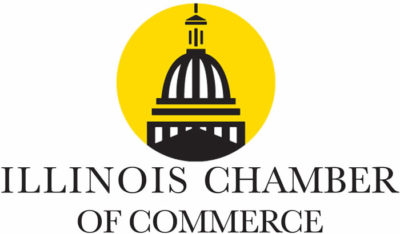A jobs bill in the General Assembly that is supposed to place the state on a path to 100% renewable energy and providing new job’s to Illinois’ economy is a bit of a misnomer according to the Illinois Chamber of Commerce. ICC CEO Todd Maisch explains how the bill is bad for consumers: “While renewable energy is making process are more expensive than fossil fuels and our current mix of energy supply in the state. The more that you go ahead and push this with government mandates that source of electricity onto the grid, the more consumers are going to have to pay.”
Maisch says the bill also closes down competition, saying that ComEd customers up to the northern portion of the state are seeing out of state electricity being pushed off the grid to more clean energy sources in state. Maisch explains why that’s bad: “If you close off the state’s supply from other states, there is just less supply and prices go up to the benefit of people generating electricity. It’s a double recipe for higher costs for consumers and job providers in the state.” According to the Chamber of Commerce, the Clean Energy Jobs Act would prioritize certain generation sources, predominately nuclear, irrespective of cost, and would significantly limit the state’s access to all forms of electrical generation. By making the state pick nuclear power first, according to ICC, the ratepayers would be on the hook for higher costs because the competitive market wouldn’t be available to protect them and ratepayers would have to pay whatever clean energy in the state would decide to charge.
Maisch says projects like the Lincoln Land Wind project in Morgan County needs to be fully analyzed by citizens on both sides. “While we push for communities to make their own decisions, they need to look at both sides of the ledger here. First of all, there are going to be some property tax values that come in but, at the same time, there is a subsidy to wind that taxpayers pay in to those projects in a different way. Wind is certainly coming along in the state. The growth has been very strong but everybody needs to know that there are pluses and minuses with these large developments.”
Maisch says that Illinois residents need to get in touch with their local legislators and tell them to stop the CEJA from passing in the General Assembly. “I think it’s really telling that estimates say that if the legislation that’s currently under consideration is passed nationwide, it would cost consumers $4.5 trillion in higher energy costs. That translates to $35,000 per household per year. I think it’s really important for businesses to call local legislators and say that they cannot afford this, especially for a bill that just doesn’t make sense.”
Maisch says the 600 page piece of legislation needs to be taken back to further discussions because it closes off the open market, increases costs, and financially burdens every household in the state under the guise of economic growth and clean energy.




